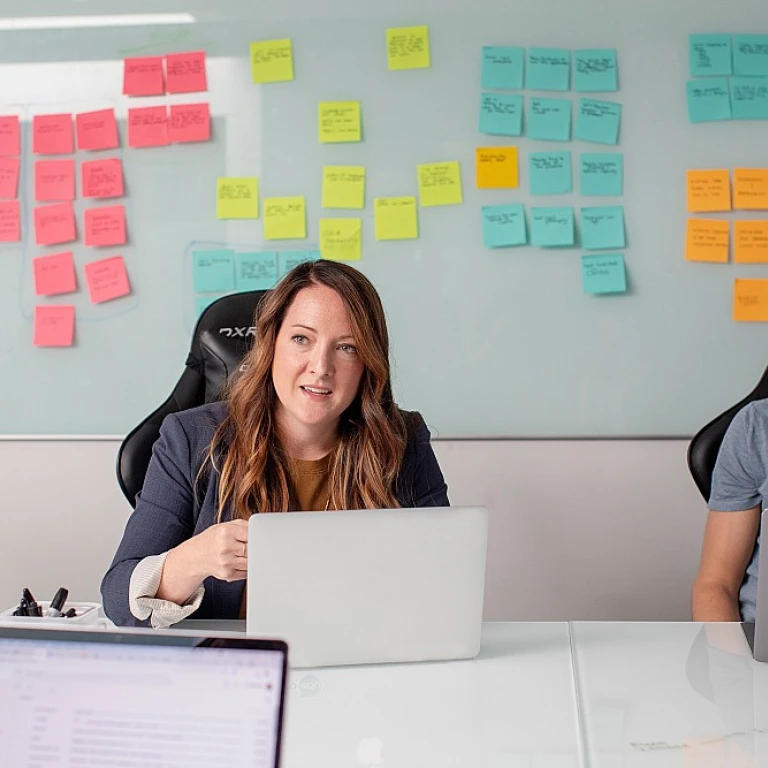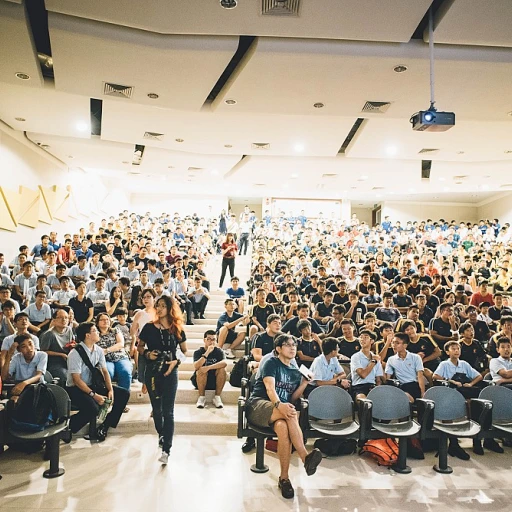
Understanding the Role of a Technical Program Manager
Decoding the Responsibilities of a TPM
A Technical Program Manager (TPM) is a pivotal player in any tech-driven organization, acting as the bridge between product development and the engineering teams. Their role is multifaceted, encompassing a wide range of responsibilities that demand both technical expertise and strong project management skills. TPMs manage cross-functional programs from inception through execution, ensuring that projects align with business goals while adhering to delivery timelines. They oversee the entire cycle, from design to system implementation, ensuring that decision-making processes are both efficient and robust. This holistic responsibility requires an astute understanding of the technical ecosystem and the ability to communicate effectively across teams. In the context of an interview, understanding the breadth of a TPM's role is crucial. This comprehension not only helps candidates articulate their answers more effectively but also aids in showcasing their problem-solving abilities in design interviews. The TPM role is dynamic; it requires a balance of system design knowledge, strategic thinking, and people management skills. This blend aids a program manager in addressing the complex questions posed during interviews and demonstrates their competence in guiding engineering efforts. For anyone looking to transition into this challenging yet rewarding role, acquiring insight into what a TPM does daily can be invaluable. A useful resource in navigating career transitions can be found here. This guide provides detailed insights into the skills and experiences that can aid in seamlessly transitioning into a program management role.Key Components of the Meta TPM Solution Design Interview
Exploring the Core Aspects of the Meta TPM Interview
The Meta Technical Program Manager (TPM) Solution Design Interview is a critical step for those aspiring to join Meta's dynamic environment. Understanding its unique components can significantly enhance your readiness and confidence.In-Depth System Design Questions
A central feature of the Meta TPM interview is the emphasis on system design. Candidates are evaluated on their capability to design scalable, efficient, and robust systems. You'll be presented with tasks requiring a demonstration of high-level architectural system design knowledge. These questions often explore how you can balance engineering and program management skills to create successful products.Behavioral and Cross-Functional Assessment
An equally important part of the interview involves behavioral questions. These allow interviewers to assess your past work experiences and how you collaborate with cross-functional teams. Understanding how you've contributed to program management initiatives in real-world scenarios can add depth to your responses and highlight your capacity to lead effectively within a software engineering context.Practical Application through Mock Interviews
In preparation, engaging in mock interviews can act as a realistic rehearsal for the main event. They provide practical exposure to potential interview questions, allowing TPMS to refine their answers and timing. Mock interviews mimic the time constraints and pressure of the actual design interview, contributing to a more cohesive and confident delivery. To further enhance your preparation, it's beneficial to explore this quick guide on ensuring feasibility for managers. By incorporating these insights, you can approach the Meta TPM interview with a well-rounded understanding of what the interview process seeks and how to excel at it.Common Challenges in the Interview Process
Overcoming Interview Obstacles
A Technical Program Manager (TPM) interview at Meta can be quite challenging due to the breadth of topics covered, including system and design interviews that dive deep into technical and strategic domains. However, understanding potential hurdles can help candidates navigate this process more effectively.Firstly, one of the most common challenges is mastering the complexity of system design questions. Interviewees are expected to showcase not only their technical prowess but also their ability to conceptualize and articulate a robust system architecture. This requires a balance between theoretical understanding and pragmatic execution, where candidates need to justify their design choices while considering scalability, efficiency, and feasibility.
Another significant barrier is handling cross-functional aspects of program management. Meta places a strong emphasis on the integration across teams, so candidates should be prepared to discuss how they would navigate cross-functional interactions and dependencies. This includes understanding roles within both engineering and management, and proposing solutions that reflect these multidisciplinary considerations.
Additionally, answering behavioral questions confidently can be daunting. These questions are designed to understand how past experiences have shaped a candidate's problem-solving skills and adaptability in challenging situations. It’s essential to prepare anecdotes that demonstrate leadership, negotiation skills, and the ability to drive projects to completion under tight deadlines.
Time management is another crucial aspect of the interview process. With complex scenarios thrown at you during the design interviews, managing time effectively to cover all essential components without sacrificing depth is a skill in itself.
By preparing for these potential pitfalls, you can enhance your chances of success in the TPM interview process at Meta and demonstrate your readiness for an impactful role in program management. Applying strategic preparation from the start builds a strong foundation that guides candidates through even the most challenging interview segments, leaving a lasting impression of competence and confidence.
Effective Preparation Strategies
Preparation Tactics for Success
To confidently walk into the Meta TPM Solution Design interview, preparation is key. While understanding the role and components of the interview is crucial, how you prepare can make a massive difference.- Thorough Understanding of System Design: A solid grasp of system design principles is essential. This includes architecture systems, high-level overviews, and the specific technical considerations that come with them. You'll need to be ready to discuss various aspects, such as scalability and integration, as these often form the backbone of interview questions.
- Mock Interviews and Drills: Engage in mock interviews to mimic the pressure of actual scenarios. By consistently practicing with peers or mentors, you will become more adept at articulating your thoughts clearly under time constraints. Focus on design interviews and cross-functional problem-solving as these reflect the real-world challenges you'll face.
- Answering Behavioral Questions: Beyond technical proficiency, managers seek candidates who demonstrate solid behavioral skills. Reflect on your past experiences and prepare stories illustrating your project management effectiveness, ability to work in diverse teams, and leadership capabilities.
- Building a Strong Foundation in Software Engineering: A technical program manager must bridge engineering and program management. Thus, a deep understanding of software engineering principles will bolster your capacity to answer design interview questions effectively.
- Hands-On Experience and Real-World Applications: The interviews value candidates who can translate theoretical knowledge into practical solutions. Engage in projects that allow you to work hands-on with systems and product development. This experience will be invaluable not only in answering program management queries but also in demonstrating practical expertise during the interview process.
Real-World Applications of Solution Design
Applying Solution Design in Real-World Scenarios
In the world of software engineering and system design, the theoretical knowledge of problem-solving can only go so far unless applied to practical scenarios. For many prospective Technical Program Managers (TPMs), effectively leveraging solution design skills is crucial in managing complex projects across cross-functional teams. To begin with, understanding the broader context in which a TPM operates can aid significantly. A Meta TPM, responsible for delivering large-scale, impactful technology solutions, must utilize a blend of business acumen and technical prowess. But what does this mean in a real-world setting?- System and Architecture Design: TPMs are often involved in detailed discussions around system architecture. This scene arises often during design interviews, where interview questions might revolve around creating efficient, scalable, and resilient systems. Exploring high-level architecture systems thoroughly is essential, as it helps foresee potential challenges that may surface during product or service deployment.
- Innovative Solutions: An adept program manager conceptualizes innovative solutions by collaborating with both the engineering teams and the product management department. Approaching problems from varied perspectives allows for well-rounded solution design that accommodates future scaling and integration demands.
- Cross-Functional Collaboration: A successful TPM interview strategy will emphasize strong cross-functional communication and negotiation skills. Real-life application of these principles means ensuring that everyone—from developers to UX designers—works in harmony, a vital part of the process in aligning organizational goals with the technical roadmaps.
- Iterative Feedback Loops: Incorporating continuous feedback throughout the design and implementation stages is not just an industry best practice but a way to maintain project momentum and alignment. In real-world applications, this also reflects through adapting solutions based on iterative user and stakeholder feedback.













